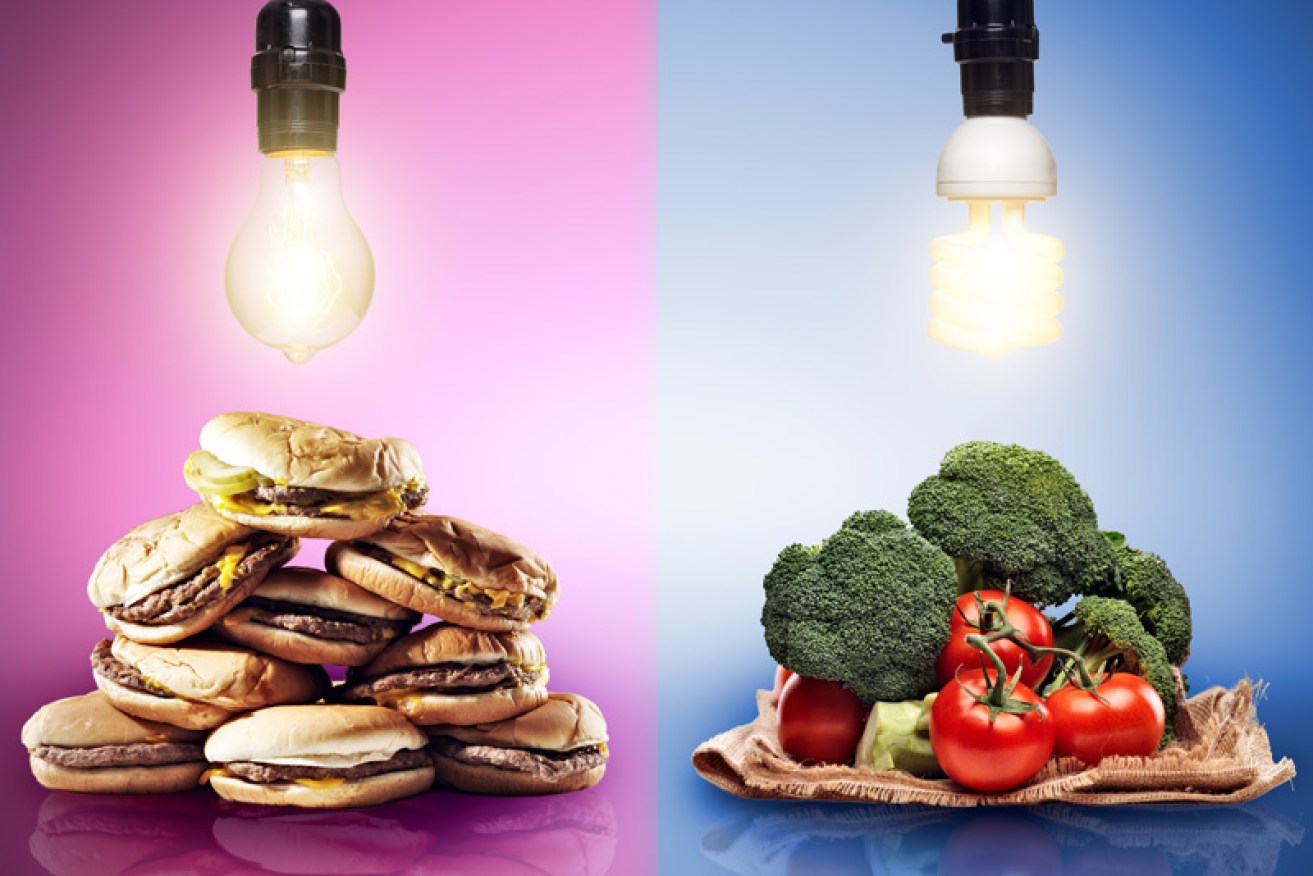A tobacco-like tax on sugary drinks would prevent childhood obesity and save billions in medical costs, but only if a consumption tax on fruits and vegetables is abandoned, leading health groups say.
Four health organisations have urged the federal government to crack down on junk food, only weeks after Coalition backbenchers called for a 10 per cent tax on healthy foods.
Liberal backbencher Dan Tehan sparked the debate by suggesting that the GST exemption on fruit and vegetables, as well as private school fees and health insurance, should be removed.
• Senior minister fuels GST debate
• Why an extra GST on foreign goods won’t work
• Health, education could get GST
The Consumer Health Forum and the Public Health Association, two of the groups calling for a tax on high-sugar drinks, have hit back at the GST proposal, saying a junk food tax is the way to raise revenue and cover the costs of obesity, estimated at $56 billion a year.
Public Health Association chief executive Michael Moore tells The New Daily that imposing a tax on healthy foods would be a “really retrograde step” that would worsen eating habits even if a junk food tax was imposed.
“Over the past 10 years the price of packaged food, with all its sugar, fat and salt, has remained reasonably steady, whereas the price of fresh fruit and vegetables and wholefoods has gone up, so that would just make that accelerate even more,” he says.
Extending the GST to healthy foods would have a disproportionate impact on working Australians, who are “specifically targeted” by the food industry, without any of the health gains of a sugary drink tax, Mr Moore says.
Consumer Health Forum communications director Mark Metherell tells The New Daily an increase in the GST at the same time as a junk food tax would negate the health benefits.
“Anything we can do to make fresh fruit and vegetables more attractive on a price basis compared to processed food would be better. Bringing in the GST would be retrogressive,” Mr Metherell says.
Taxes on unhealthy foods and drinks have already proven successful in a range of countries, the World Health Organisation (WHO) has found.
For example, a recent decision to heavily tax unhealthy foods and drinks in Hungary has led to a 27 per cent drop in junk food sales in that country.
In a recent report, the WHO said that unhealthy habits such as overeating are causing a worldwide “epidemic” of preventable diseases worse than “any other epidemic known to man”.
Approximately six million people globally die young each year due to tobacco use, 3.3 million deaths are linked to alcohol abuse, 3.2 million to lacking physical activity and 1.7 million from eating too much salt, according to the WHO findings.
Australia has one of the highest rates of obesity in the world with 63 per cent of adults and one in four children being overweight or obese.
– with AAP









